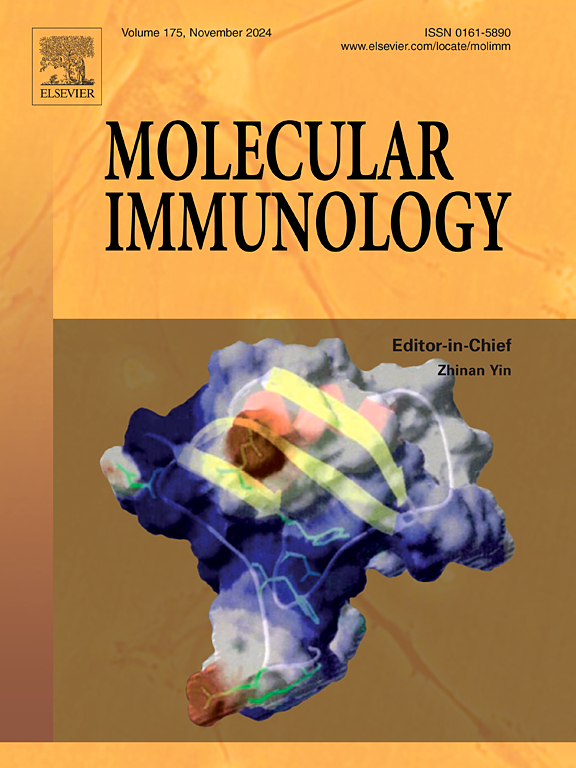Leven PRO-CR mediates 5-HT and gut microbiota via TPH1 to improve slow-transit constipation
IF 3
3区 医学
Q2 BIOCHEMISTRY & MOLECULAR BIOLOGY
引用次数: 0
Abstract
Slow-transit constipation (STC) is a chronic disorder causing prolonged colonic transit and discomfort; this study explores the therapeutic potential of probiotics mixture (Leven PRO-CR) in modulating gut microbiota and enhancing intestinal motility. A loperamide-induced STC mouse model was established, and the effects of Leven PRO-CR treatment were evaluated by measuring defecation frequency, stool water content, and intestinal transit rate. Histopathological analyses, including Hematoxylin & Eosin (H&E) staining, immunohistochemistry (IHC), and TUNEL assay, were performed to assess colonic tissue integrity, interstitial cells of Cajal (ICCs) density, and apoptosis. The expression levels of serotonin (5-HT)-related markers (TPH1, 5-HT receptors, SERT) and enteric neural markers (NOS1, BDNF, TRPV1, GDNF) were analyzed using quantitative PCR (qPCR), Western blotting, and immunofluorescence staining. The gut microbiota composition was examined through 16S rDNA sequencing. Statistical analyses were conducted using GraphPad Prism, with significance set at P < 0.05. Leven PRO-CR significantly improved STC symptoms by reducing first defecation time, increasing stool frequency, fecal water content, and intestinal transit rate. We found that Leven PRO-CR restored colonic tissue integrity, enhanced ICC survival by upregulating c-Kit/SCF signaling, and reduced apoptosis. Leven PRO-CR upregulated TPH1 expression, increased 5-HT levels, and inhibited its degradation, thereby promoting intestinal motility. Leven PRO-CR also modulated NOS1, BDNF, TRPV1, and GDNF mRNA and protein expression, suggesting enhanced enteric nervous system function. 16S rDNA sequencing revealed increased microbial diversity and a restored balance of beneficial bacteria after Leven PRO-CR treatment, indicating the beneficial effects of Leven PRO-CR on balancing gut microbiota in STC. Overall, Leven PRO-CR alleviated slow-transit constipation potentially by enhancing 5-HT secretion, upregulating TPH1 channels, and restoring microbiota balance.
Leven PRO-CR通过TPH1介导5-HT和肠道微生物群改善慢转运便秘
慢转运便秘(STC)是一种慢性疾病,导致结肠运输时间延长和不适;本研究探讨益生菌混合物(Leven PRO-CR)在调节肠道菌群和增强肠道动力方面的治疗潜力。建立洛哌丁胺诱导的STC小鼠模型,通过测量排便次数、粪便含水量和肠道转运率来评价Leven PRO-CR治疗的效果。组织病理学分析,包括苏木精;采用伊红(H&;E)染色、免疫组化(IHC)和TUNEL法评估结肠组织完整性、间质Cajal细胞(ICCs)密度和凋亡情况。采用定量PCR (qPCR)、Western blotting和免疫荧光染色分析血清素(5-HT)相关标志物(TPH1、5-HT受体、SERT)和肠道神经标志物(NOS1、BDNF、TRPV1、GDNF)的表达水平。通过16S rDNA测序检测肠道菌群组成。采用GraphPad Prism进行统计学分析,P值为 <; 0.05。Leven PRO-CR通过缩短首次排便时间、增加排便次数、粪便含水量和肠道转运率显著改善STC症状。我们发现Leven PRO-CR可恢复结肠组织完整性,通过上调c-Kit/SCF信号通路提高ICC存活,并减少细胞凋亡。Leven PRO-CR上调TPH1表达,增加5-HT水平,抑制其降解,从而促进肠道蠕动。Leven PRO-CR还能调节NOS1、BDNF、TRPV1和GDNF mRNA和蛋白的表达,提示肠神经系统功能增强。16S rDNA测序结果显示,Leven PRO-CR处理后微生物多样性增加,有益菌群平衡恢复,表明Leven PRO-CR对STC肠道菌群平衡有有益作用。总体而言,Leven PRO-CR可能通过增强5-HT分泌、上调TPH1通道和恢复微生物群平衡来缓解慢传输型便秘。
本文章由计算机程序翻译,如有差异,请以英文原文为准。
求助全文
约1分钟内获得全文
求助全文
来源期刊

Molecular immunology
医学-免疫学
CiteScore
6.90
自引率
2.80%
发文量
324
审稿时长
50 days
期刊介绍:
Molecular Immunology publishes original articles, reviews and commentaries on all areas of immunology, with a particular focus on description of cellular, biochemical or genetic mechanisms underlying immunological phenomena. Studies on all model organisms, from invertebrates to humans, are suitable. Examples include, but are not restricted to:
Infection, autoimmunity, transplantation, immunodeficiencies, inflammation and tumor immunology
Mechanisms of induction, regulation and termination of innate and adaptive immunity
Intercellular communication, cooperation and regulation
Intracellular mechanisms of immunity (endocytosis, protein trafficking, pathogen recognition, antigen presentation, etc)
Mechanisms of action of the cells and molecules of the immune system
Structural analysis
Development of the immune system
Comparative immunology and evolution of the immune system
"Omics" studies and bioinformatics
Vaccines, biotechnology and therapeutic manipulation of the immune system (therapeutic antibodies, cytokines, cellular therapies, etc)
Technical developments.
 求助内容:
求助内容: 应助结果提醒方式:
应助结果提醒方式:


